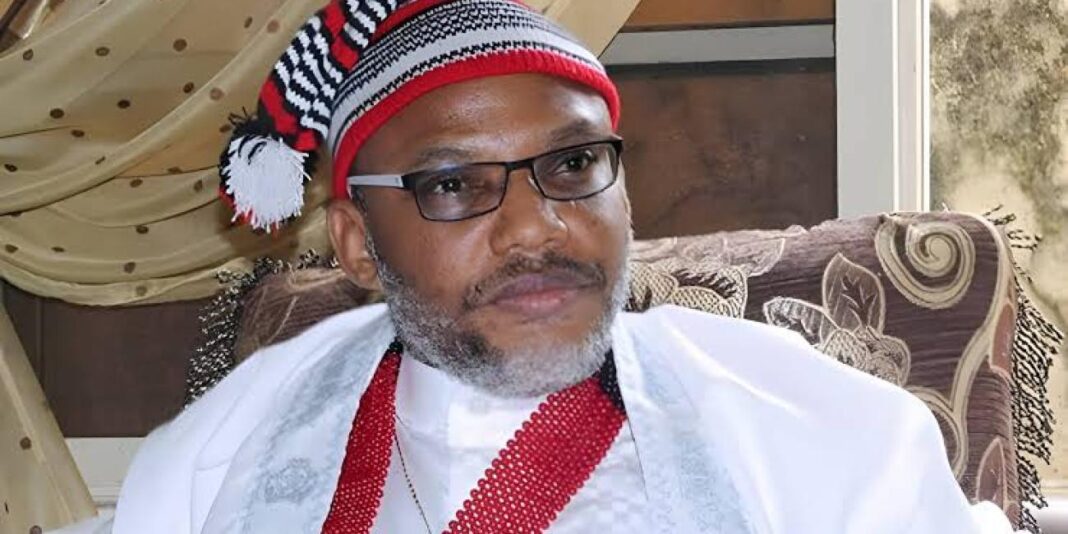The detained leader of the Indigenous People of Biafra (IPOB), Mazi Nnamdi Kanu, has filed a fresh motion before the Federal High Court in Abuja, seeking to have all charges against him struck out for lacking any legal basis under Nigerian law.

In the motion dated October 30, 2025, and titled “Motion on Notice and Written Address in Support,” Kanu argued that there is no valid charge or count recognized by the laws of the Federal Republic of Nigeria against him. He maintained that the charges are “a nullity ab initio” due to the prosecution’s reliance on repealed and non-existent laws.
The IPOB leader, who is representing himself, contended that the prosecution’s case was based on the Customs and Excise Management Act (CEMA)—repealed by the Nigeria Customs Service Act 2023—and the Terrorism Prevention (Amendment) Act 2013, which has been replaced by the Terrorism (Prevention and Prohibition) Act 2022. He said this violates Section 36(12) of the Constitution, which forbids trial on charges not defined by any existing law.
Kanu urged the court to strike out the case entirely, insisting that there is “no lawful or constitutional basis” for his continued trial or detention. He further cited the Supreme Court ruling in FRN v. Kanu (SC/CR/1361/2022), which directed lower courts to take judicial notice of repealed statutes, arguing that failure to comply renders the proceedings void.

He also stated that the alleged offences, contained in counts one to six, were purportedly committed in Kenya, thereby violating Section 76(1)(d)(iii) of the TPPA 2022, which requires confirmation by a Kenyan court before any prosecution in Nigeria can proceed. This, he argued, nullifies the court’s extraterritorial jurisdiction and breaches Article 7(2) of the African Charter on Human and Peoples’ Rights.
Quoting Section 1(3) of the Constitution, Kanu reminded the court that any law inconsistent with the Constitution is void, referencing past rulings such as Aoko v. Fagbemi (1961) and FRN v. Ifegwu (2003) where convictions based on non-existent offences were nullified.
The motion concludes with Kanu requesting the court to direct the prosecution to respond within three days and to deliver a ruling on or before November 4, 2025. He emphasized that his application raises pure constitutional questions of law and requires no affidavit, as the issues are evident from the court record and the country’s existing laws.

Kanu maintained that the ongoing prosecution, based on repealed legislation, is unconstitutional and urged the court to uphold the supremacy of the law by dismissing all charges against him.




